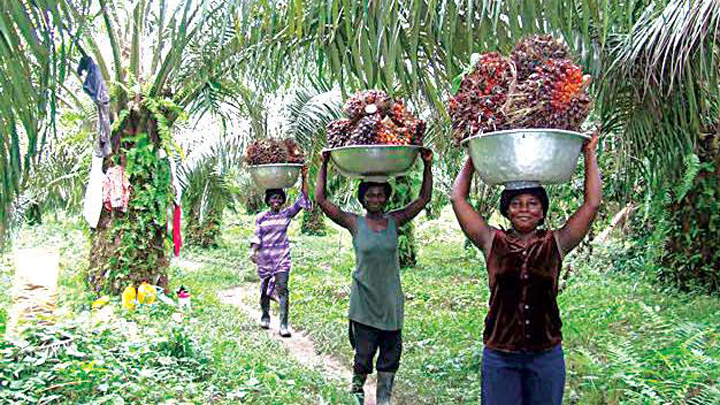 The escalating cases of domestic child abuse of which children have sometimes been faced with near death situations are sad spectacles of man’s inhumanity to man. Virtually every week, gory images of abused children fill the media space leaving many to wonder whether humanity is beginning to run out of patience for children. Indeed, at the frequency, with which this is happening, many are wondering whether an end to child abuse is anywhere within sight.
The escalating cases of domestic child abuse of which children have sometimes been faced with near death situations are sad spectacles of man’s inhumanity to man. Virtually every week, gory images of abused children fill the media space leaving many to wonder whether humanity is beginning to run out of patience for children. Indeed, at the frequency, with which this is happening, many are wondering whether an end to child abuse is anywhere within sight.
More worrisome and difficult to decipher is the recent case of a mother in the Egbeda area of Lagos State who laboured to bring two sons (aged five and two) to life, but turned around and allegedly dehumanised them alongside her partner (said to be the children’s step-father). The mother of the children and her partner were alleged to have maltreated, inflicted injuries and assaulted the minors, which caused them harm.
According to media reports, etched on the innocent bodies of the two minors, were scars and physical injuries, which spoke volumes of what they have been through. In fact, the online photographs of the two children present horrifying images showing evidence of children humiliated, victimised and subjected to unnecessary torture.
As the nation battled to come to terms with the assault on the brothers, by their mother and her lover in Lagos; another media report exposed the arrest of a woman, Mrs. Upev, by the Benue State Police Command, on the suspicion of killing her 10-year-old stepson, Fanen Yange. It appears that there is a catalogue of unending cases of domestic abuse, because in 2022, a 37-year-old woman, Chinelo Udeogu, was arrested for beating her three-year-old grand-daughter to death in Awka, Anambra State.
Again, late last year, an Akwa Ibom State-born minor, whose biological parents reside in Agulu, Anambra State, was violated concurrently with another girl who was at that time seven years older than her, by her guardian who resides in Awka. The minor’s situation came to light after she was impregnated, by her guardian. Similarly, last December, a teenage boy, Chidindu was left with serious burns on his face, neck, and chest at Elezuo Street, Okigwe, Imo State, after he was physically abused by his aunt, in Imo State. Fellow minors living in the same compound with the victim alleged that the boy was constantly abused by his aunt, whom Chindu also alleged: “threatened to pour burning coals into his eyes and make him go blind.”
These cases exemplify failed parenting and present a very sad spectacle of man’s inhumanity to man. It is a worrisome trend on children, who hitherto were bundles of joy, but are now becoming sources of pains, or loathsome creatures that receive beastly treatment from their parents, guardians and caregivers; and many are unable to fathom this development.
Again, the reported cases could just be a tip of the iceberg as there may be several others hidden and spread across the country in various communities, because in most cultures, such cases are kept as private affairs. Also, sometimes, children are tortured with the belief that ‘they are beating the devil out of them.’
Although in 2003, Nigeria signed into law the Child Rights Act (CRA) to domesticate the 1989 United Nations Convention on the Rights of the Child, as well as the 1990 African Charter on the Rights and Welfare of the Child; and 34 out of the 36 states of the federation, have adopted it, the indifference shown by society in the face of the unending menace is not unconnected with the poor and slow implementation.
Essentially, there is extreme weakness of child protection systems in the country and the failure to build a child-centred social protection system, especially with its inherent/broad governance concerns in the country. Therefore, it may be inferred that the incidents of child abuse in the country is becoming alarmingly high. Sadly, many of those who witness these acts of barbarism do not report the infractions to the appropriate authorities.
It does appear that the Lagos State government has charged to court the duo (a mother and her partner) alleged to have maltreated, inflicted injuries and assaulted the minors, which caused them harm. The case being in court, suggests that the duty bearers are rising up to protect the rights of children; and the Lagos State Government should ensure that justice is served in order to restore hope and confaidence in the commitment of state to secure lives and property. As such, this case should not for any reason be swept under the carpet or made to suffer inadequate prosecution. This is necessary to stop the abuse of many defenceless children in the country. Hence, the Lagos State Government (LASG) should be alive to the sensitivity of this matter; and follow up to a logical conclusion; and also make the court judgment public.
Apart from duty bearers’ accountability, the alleged behaviour of a mother and her partner raises a moral question on an emerging trend of the mentality of barbarism by some parents and care givers. So, it is regrettable, reprehensible and irresponsible for a mother and her partner to abuse their children. It signals a bad omen and must be pursued to a logical conclusion.
Without pre-empting the outcome of the investigations, the horrifying images of the torture shown on various media platforms point to a near death situation! This is unfortunate as the children are supposed to be socialised, developed and made to thrive; not tortured or beaten, and abused; and left to writhe in pains.
It may also not be impossible that these children are suffering from emotional distress and traumatised; and if they are left unaddressed or untreated, there may be serious adverse implications for their mental health.
Hence, there is the need for psychosocial support to include general counselling and trauma therapy. Counselling should be provided by appropriately trained personnel, specifically, counsellors and psychologists trained to work with the various age groups. For most survivours, the counselling sessions normally focus on problem-solving strategies as well as coping mechanisms in relation to the issues that survivours may be concerned about; and ultimately to restore emotional and physical stability and well-being of the victims.












